2026-03-05 01:56:43

My initial gut reaction upon seeing the details of the new MacBook Neo was that this was the smartest thing Apple has done in years. While I noted that it was not an overstatement, it was also noted on social media. The takes are necessarily hot. So I've sat on it for a few hours and allowed the take too cool a bit. Out of the oven, I still stand by it: this is the smartest move Apple has made in years.
Very specifically one element of the MacBook Neo: $599.
When the product was first rumored in June of last year, my guess was that it would be priced at $799. Not shockingly low, but at $200 below their then-entry level MacBook Air, it felt very Apple. Yes, their M1 MacBook Air sold in partnership with Walmart was $699, but that was a different (older) product in a different (wider) channel.1 After years and years of watching Apple, I felt confident enough in the $799 price that I doubled down on it in November:
While no specific price is given in this report aside from "well under $1,000", the big question is how low Apple will go here. They have a lot of room below the current $999 M4 MacBook Air – which is $899 with a student discount. Is $799 low enough for this product? Do they have to meet the $699 price of the Walmart MacBooks? Could they do $599 to get it in line with the iPad + Keyboards? *Do they dare do $499* to get their machines actually competitive with Chromebooks?
Let's not get carried away.
I guessed the $799 price point back in June and I'm sticking to that. Perhaps $699 with that student discount. And Apple would frame it, as they always do, as "not the cheapest, but the best" (in that general segment).
Well, Apple can still surprise me, as it turns out.2 And they seemingly swallowed their pride – and margins – and went with $599.3
Actually, let's get carried away: it's $499 for students. Boom.
And that's key because this is a machine built for students. This isn't a MacBook for you or me – we already have plenty of those – this is clearly for our children and perhaps parents. I know it sounds belittling to call it "My First MacBook" but the colored aluminum sort of fits... Apple made this a no-brainer buy for so many.
I've long been baffled by the notion that Apple would cede the education market – one they long dominated when I was a kid – to cheap Windows devices and more recently, Chromebooks. Yes, they clearly thought the iPad could be the answer there. But that always felt a bit off. Sure, the iPad is a brilliant device and great for some things in classrooms. But for a lot of work, including school work, you're going to want a "real" computer. Try as they might with keyboards and trackpads, Apple has not been able to morph the iPad into that real computer. And they keep insisting they don't want to! (Even if their constant tweaks suggest otherwise.)
That's fine. But again, it doesn't work in the classroom. Even if it works 90% of the time, it needs to work 100% of the time for students. And the MacBook Neo can. Finally.
A few more quick thoughts as I await the machine to actually give it a go. These are mostly nits, and they don't matter – again, all the really matters is the price...
First and foremost, I wish there was an option to upgrade to 16GB of RAM. I know I'm not the target audience for this, but I suspect that a lot of the students buying these may want to play around with some localized AI in the not-too-distant future, and I doubt 8GB is going to cut it. While 8GB has never seemed like an issue on the many iPhones that have it,4 I'm genuinely curious how it feels on a Mac (when paired with the A18 Pro iPhone chip). I suspect I'll feel it, but mainly because I'm coming from 32GB – if I were at 16GB, perhaps not as much.
Also, I don't do too much on my portable machine beyond using the web browser and an AI app here or there, so... we'll see!
While I've long hoped for a return to the 12" MacBook form factor, I suspect this will be close enough. It's smaller than the 13.6" screen on the MacBook Air and the footprint is obviously going to be a bit smaller. The weight is the same – the exact same – as the smaller MacBook Air, which is clearly on purpose. I guess Apple didn't want to make that some sort of debate.
I'm happy about the return to colorful portable machines – exactly what I hoped for/wrote about two years ago. I might have liked to see them a bit more bold – perhaps even NEOn? – but this is a good start. Obviously, I'm going with "Citrus".
No green machine though, as had been rumored...5 (And really, how much different is "Blush" from Rose Gold and Citrus from "Gold" – "Indigo" just gives Apple yet another shade of blue/gray/black?)
Sort of strange to only put Touch ID on the 512GB storage upgraded model (at $699)? It's such a key feature for not just convenience but security too? I guess we know where Apple drew the margin line!
While the battery life trade-off (versus the Air) is only said to be two hours on Apple's main specs, drilling down, it seems like it may be up to 4 hours less time doing regular "wireless web" stuff. 11 hours still should be enough for most people, but it's worth calling out. Again, we'll see!
As for the name, I like it. I think 'MacBook' would have made a lot of sense for this machine too, but it's a bit old school and bland. I like trying something new and it will clearly help with marketing. As Don Draper would tell you, the most important idea in advertising is "new". So why not put it in the name?
That plus being priced to move... Apple is going to sell a shit ton of the MacBook Neo.
One more thing: No Tim Cook? No problem. If you still had any questions about who is up next to lead Apple, consider those put to rest. John Ternus was up there, on stage, live. (At least in NYC.) Sure, it was a smaller event, but an important one! This little colorful thing is gonna be huge for Apple. The first true Ternus Mac?
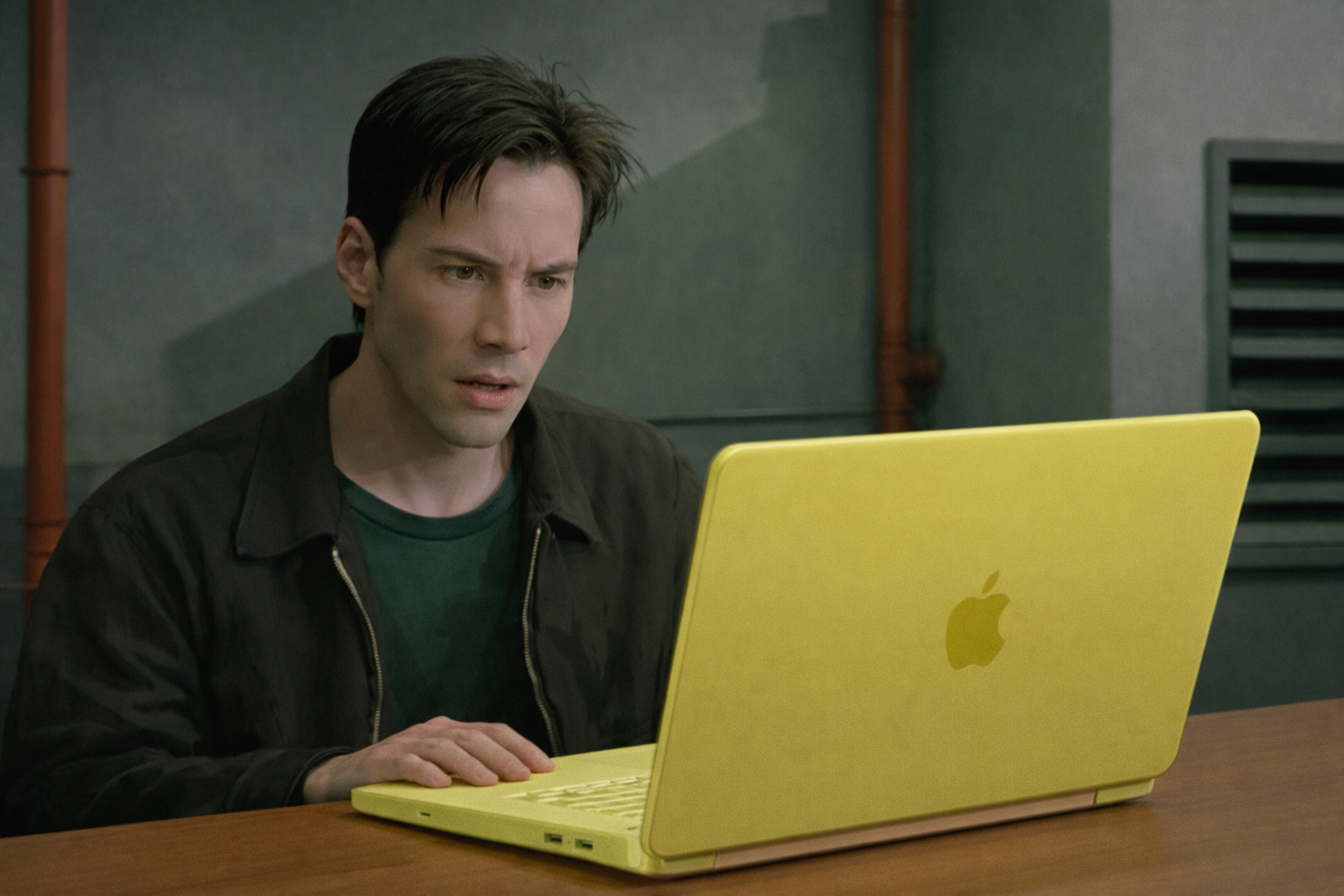
1 Is that product/partnership now done? They obviously never upgraded it to the M2, let alone M3 chip and we're now on the M5 so... Maybe that deal gave Apple all the data points they needed to make this machine... ↩
2 I'm reminded when everyone was sure that the original iPad was going to launch around $1,000, then Steve Jobs comes out on stage with $499. A true "boom". ↩
3 One suspects their margins are going to do just fine here... To quote Jared from The Big Short, "Let's not talk about my margins by the way being nice and fat." ↩
4 And perhaps the 8GB of RAM is directly tied to the A18 Pro chip and the system surrounding it? Again, it was built as an iPhone chip... ↩
5 For the 20th year in a row, everyone read a bit too much into the invite – yes, there's yellow, but there's a lot of green there too... I might note: it was also glowing, sadly no return to those lovely glowing logos, it seems... ↩
2026-03-04 21:56:00
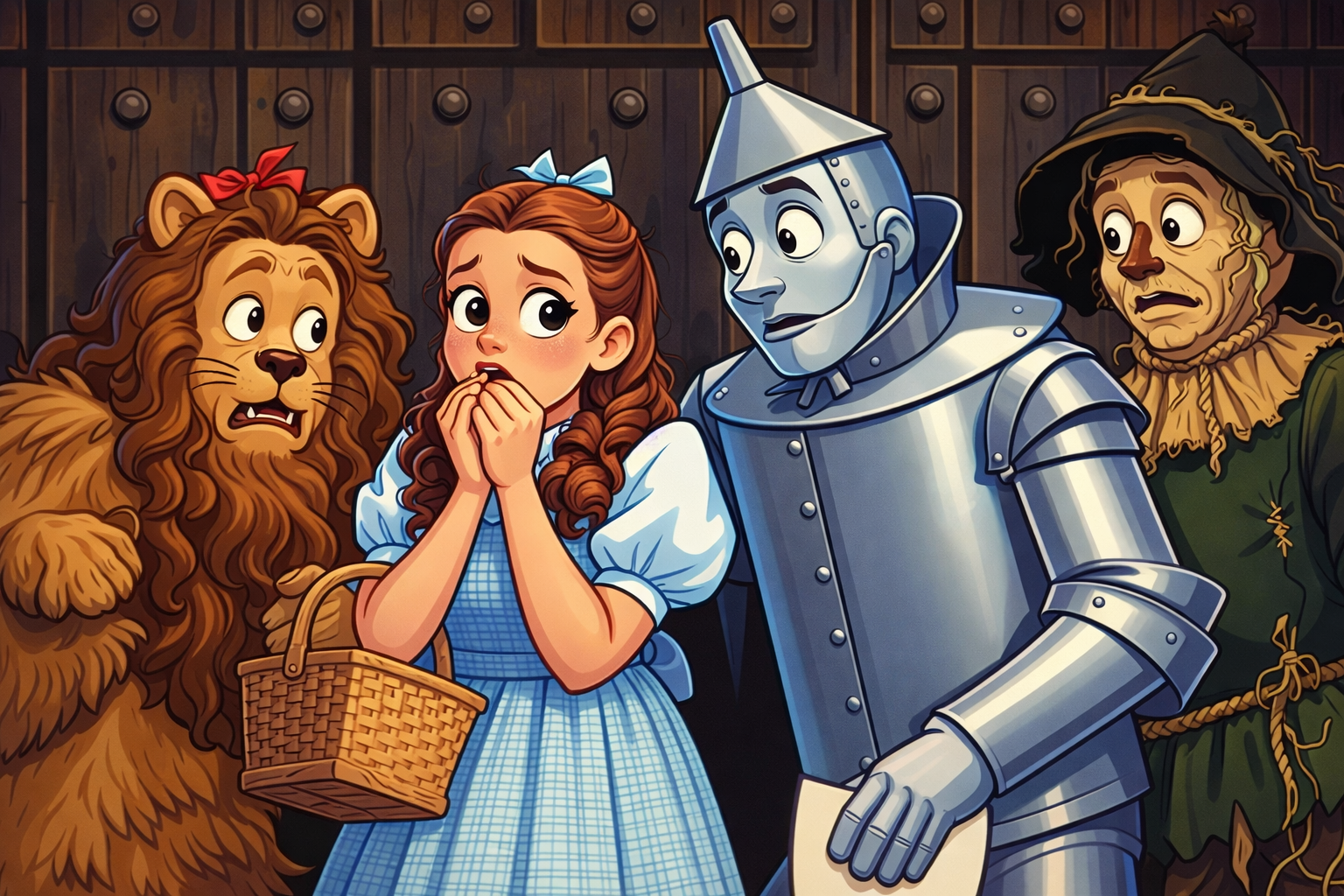
In recent times when we talk about bubbles bursting or total economic collapses, we seem to tie them to so-called "Black Swan Events". Singular, unforeseen situations that bring a seemingly strong system to its knees. COVID. Bear Stearns. 9/11. Etc. But what if this time is different™ – but really, in that it won't be one thing, but a series of events that brings it all down?
Because of recent history, we're all currently trained to look for that one thing. As such, we may be looking right past the many things building up before our very eyes...
2026-03-03 21:22:34
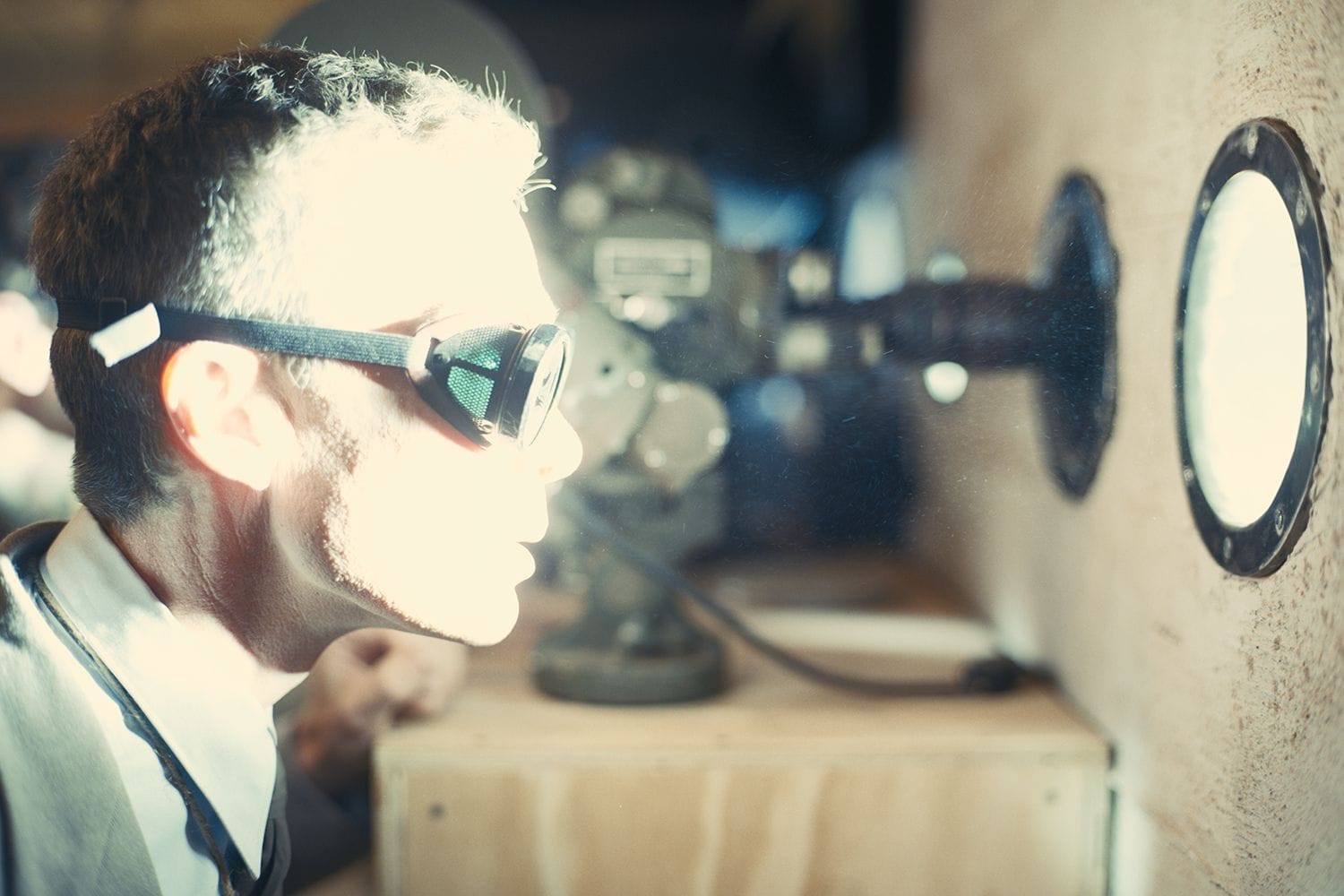
In a way, it feels like the endless talk about AI over the past few years has been leading up to this moment. The discussions have always ranged from 'is AI just a silly toy?' to 'is AI the end of humanity?' but such talk has flowed between intellectual backroom gatherings, to internet chat rooms, to dinner parties, to comment sections, to company town halls, to social media, and back again. Now here we are with the United States and several other countries actively engaged in armed confrontation – many would call this "war" though no one has declared it – and the AI debate swirls around it.
The timing is odd. We now know with certainty that last week the US was preparing to preemptively strike Iran. At the same time, the key cog in that machine, the Department of War (the artist formerly known as the Department of Defense), was also actively engaged in discussions with Anthropic – yes, the AI startup – over the usage of their models for purposes related to national security. I mean maybe, just maybe, punt the conversation until a better time?
But perhaps it's related, because the US knew these strikes were coming and that some level of Anthropic's technology would be used in them. And because there had been talk that Anthropic was questioning the use of their models in the raid to oust Nicolás Maduro from power in Venezuela a couple months prior, maybe the DoW wanted to get any usage squared away ahead of this new operation. Or perhaps Anthropic was pressing and the Pentagon, knowing what was in motion, got fed up. Or perhaps they viewed it as a potential point of leverage in such conversations. Who knows. Subsequent reporting will undoubtedly make all the timelines more clear once the smoke literally settles. But for now, this all just seems wild. As the US was ramping up to battle Iran, they were also battling one of their own technology companies.
Talking through the situation with Alex Kantrowitz on his Big Technology Podcast yesterday shook loose a few thoughts that I wanted to jot down. First and foremost, at the highest level, this all really might be as simple as the fact that the current administration and the leadership team at Anthropic, led by co-founder Dario Amodei, just really don't like each other. This disdain isn't a secret, there are plenty of public comments on the matter – in particular from administration officials noting their problems with Amodei's overall ideologies.
And in that light, it's even more strange that all of this is happening! Why on Earth is the DoW using Anthropic's models if they're so uncertain about the people building them – in control of them? The answer there may lay in their use of other technology from Palantir and Amazon, which integrates Claude. Or it may simply be that the technology is that good. Or, perhaps, the government has just been looking for the right excuse to shove them out the door. The timing wasn't great, but this squabbling over legal terms during a build up to war was the final straw.
Let's put aside Occam's razor here a moment, because there's also been an escalation of the argument to a far higher level: that this really is about private company rights, government control, democracy itself, and, of course, nuclear war.
Again, I suspect this is more likely a fairly straightforward culture clash and I think the fact that the Pentagon was so quick to sign a deal with OpenAI showcases that further. Again, in the middle of war, they're hashing out new contracts with AI players. Perhaps because all they really needed was someone they deemed more palatable to sign their existing contract. In walks Sam Altman...
The fact that OpenAI felt the need to quickly amend those documents – undoubtedly after rather immense and immediate public backlash – also points to this idea. Altman said he was simply trying to de-escalate the whole situation by, um, stepping in and taking over the contract from his biggest rival, but he also admits now how bad that looked. "Sloppy," as he puts it.
Though, naturally, they'll be keeping the contract...
Anyway, everyone – including Altman and Amodei – clearly wants to make this into something more than a contract dispute and an inevitable conscious uncoupling between two parties that simply don't like each other. And there are certainly interesting debates to be had there. But I also think it doesn't serve anyone's real interest to blow this completely out of proportion.
But that keeps happening with AI because it's AI. Depending on the situation and your own vantage point and bias, it's either the answer to or the problem with everything. AI will solve productivity. AI will displace jobs. AI will cure disease. AI will lead to more suicide. AI will free us. AI will enslave us. It literally slots in everywhere in both directions depending on the argument to be made.
It's the Rorschach um, tech.
Reading over the reactions to this latest brouhaha, it seems to me that it may be time to lay to rest one analogy that's very much top of mind and at the center of this again right now: that AI is the new nuclear weapon.
From Altman talking about the Manhattan Project. To magazines comparing him to Oppenheimer. To Amodei explicitly comparing selling NVIDIA chips to China as selling nukes to North Korea.1 The entire analogy has escalated too far. And it's clearly a big part of what is fueling this most recent debate.
But the comparison breaks down immediately at the most fundamental level. A nuclear weapon is just that, a weapon. It has one purpose – well, maybe two if you consider deterrence a purpose – and that is to destroy. Sure, we could argue that nuclear technology has other purposes, notably power, but come on, that's not the argument or comparison anyone is actually making here – aside from, historically, Iran! This is saying that AI is the biggest threat the world has faced since the advent of the atom bomb during World War II.
The difference, of course, is that AI has positive uses as well as negative ones. What is the positive usage of an atom bomb? Even if you want to say deterrence, that's decidedly the opposite of the usage of it. Ending the war with Japan? Sure, but that wasn't the initial goal and point of the project. It was simply to beat others – notably Germany – to ensure such power didn't end up in the wrong hands.
And that's exactly why the comparisons with AI keep getting drawn. Obviously, there are parallels in the build out of AI and the race to AGI – the atom bomb in this scenario. But again, AGI would presumably have good uses as well as bad – perhaps even profoundly so. Sure, some people view the race as ensuring that America gets control of such technology first for defensive reasons (which may shift into offensive reasons just as the aforementioned Department of Defense has shifted back into the Department of War). But most of those building it view it as simply trying to move technological and thus, societal, progress forward.
Yes, many disagree with those notions. But certainly no one would say that there aren't any good, positive uses for AI. Those who are so worried about it simply view the negatives as outweighing the positives – ranging from day-to-day usage to again, all the way up to the end of humanity. But even the so-called "doomers" would not deny the potential for positive usage too. Again, what is the positive use case of a nuclear bomb?
So can we please de-escalate from that analogy? It just makes everyone crazed – on both sides of such debates. Even now, it's what's guiding a lot of the back-and-forth around if a private company should have some say over what a government can or cannot do. The hypothetical is what if a company controlled a nuke? Or mass produced them?
That is, of course, illegal. But we're not talking about making the creation or advancement of AI illegal. We are talking about putting some level of guardrails in place, and yes, governments are undoubtedly far behind the ability to reliably to so simply because they act far too slowly and AI moves far too quickly. Still, no one wants to deem work on AI illegal – well, perhaps some do, but no one serious – and that is just not the case with nuclear weapons.
So if people really want to use that analogy, they should also be saying that the government should take over control of the build-out of the technology. Many think they should be more involved – including the companies themselves, not least of which because they need money and red tape cut – but no one (again, no one serious) is suggesting the government takes over full control of production.
And while some have suggested an actual Manhattan-like Project for AI, it's too late for that. Again, the technology is moving far too fast and any government would move far too slow.
I know it's tempting to use the nuclear analogy especially given the current conflicts – both actual conflicts around the world in which the US is engaged at the moment and the political ones happening within the United States itself – and the natural adjacencies. But it also just doesn't seem helpful, in part because of those actual conflicts. AI is not a nuclear weapon and we shouldn't portray it as such.
I don't know if the better analogy is electricity or the internet or some other profound breakthrough with both good and bad implications. And I want to acknowledge that it's entirely possible that AI ends up in a state where the bad does outweigh the good. I personally don't believe that will be likely, but it's certainly possible. But I do know there are no good variables with nuclear weapons. We now start wars over such beliefs...

1 Two sub-problems here. First, North Korea already has nuclear weapons, of course. Second, this splinters the analogy because here it's NVIDIA chips which are the nukes, not AI itself, which of course is the byproduct of those chips. ↩
2026-03-02 20:59:26
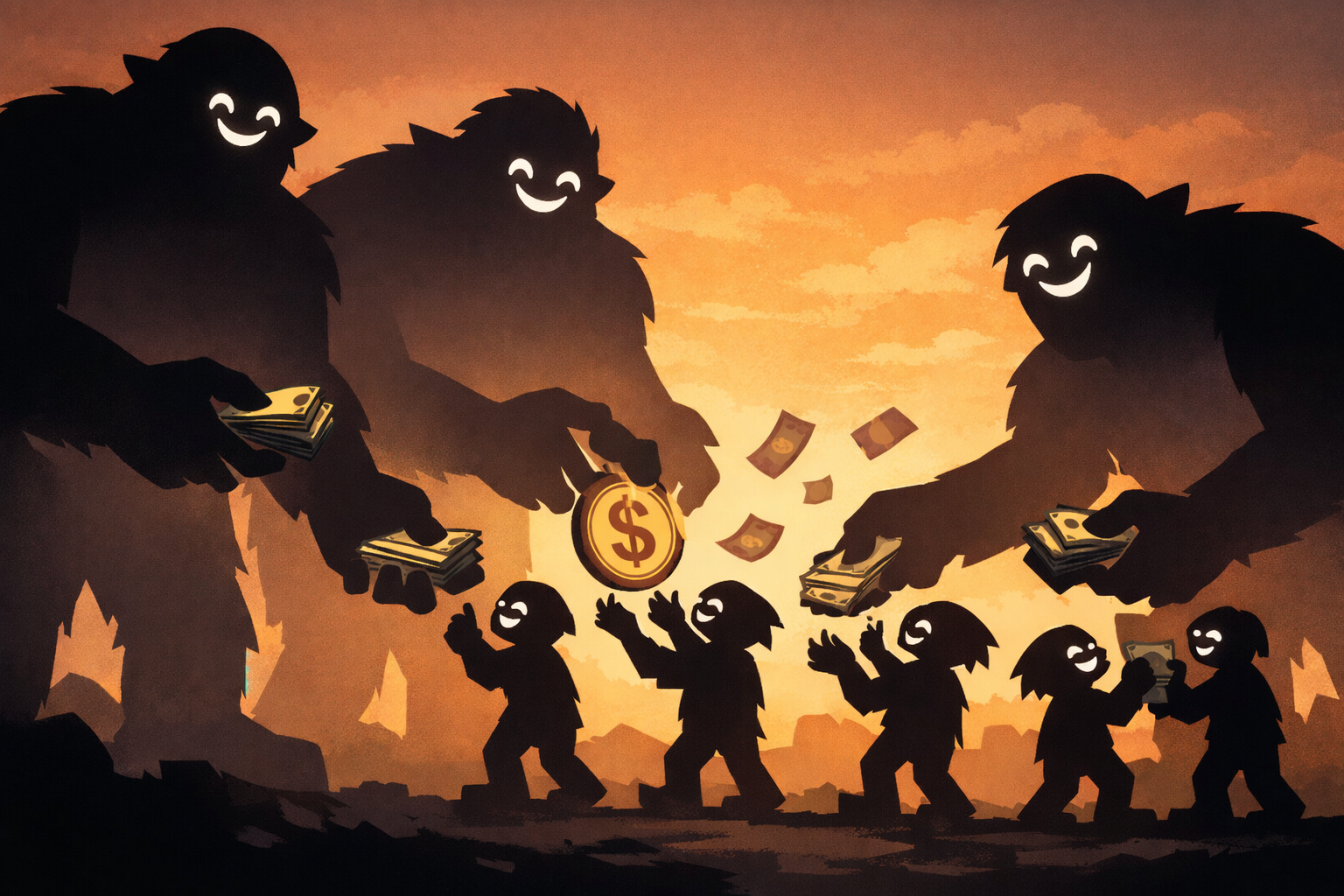
I feel like I'm taking crazy pills. For all the endless talk about both Big Tech and Big AI, it seems wild how little talk there is around the fact that increasingly, Big Tech owns Big AI. I mean this quite literally, as in ownerships stakes. True, they're not controlling positions, but undoubtedly only because that would actually raise red flags. Instead, these are massive, growing bets that are clear hedges on their own internal AI work, and to try to counter competitors own similar deals.
I've actually written about this a number of times. But with the latest OpenAI and Anthropic funding rounds, it's probably worth updating and spelling it out again. Perhaps a bit more clearly this time, with math...
2026-02-27 19:21:01
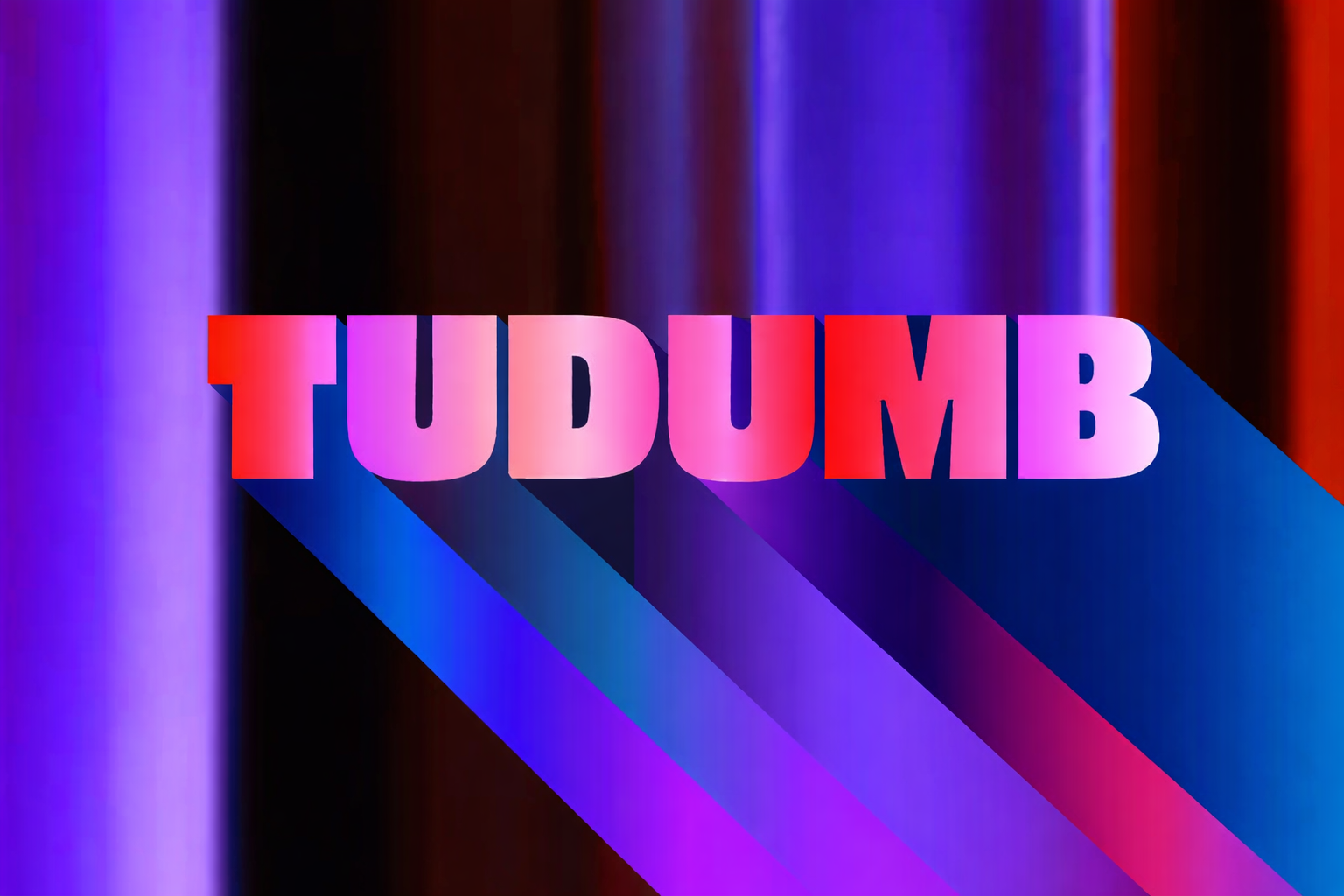
Congratulations on saying the biggest number, Paramount. $111B for a company that a year ago had a market cap of around $20B. For a company that shrunk in their most recent quarter, and in fact, for the entire year, with revenue down 5% to $37.3B. Paramount may not be buying the Titanic, but only because they already own that IP.
At the same time, kudos to Netflix for showing true discipline. Ted Sarandos kept insisting they would, but that's obviously far easier said than done when you've already talked yourself into a deal which you thought you had "won". They undoubtedly anticipated somewhat of a circus when they swooped in and stole it from under the nose of Paramount – the original bidder, remember – in December, but it turned into a full-on clown show.1 It turned into a battle against not just Paramount (as expected), but also politicians (to be expected), and Wall Street (probably should have been expected). Perhaps the real wild card though was the hatred from Hollywood itself (more on this in a minute). So it was clearly better to swallow that pride and walk away with a nearly $3B check of pure profit.
In a way, not bad for a quarter's worth of work distraction. It's almost exactly what Netflix made in actual profit last quarter.
Predictably, investors love this move. Netflix's stock has popped nearly 10% in after-hours trading. The share price had been ground down almost 25% since the deal was announced. The message was clear: you're the present and future of entertainment, why are you putting this albatross around your neck? The century-old past of entertainment stuck in perpetual decline?
At the highest level, it's why Netflix's deal was a surprise in the first place. Sure, you take a look at the deal, because why not? But nothing in Netflix's history suggested that they would take this too seriously. But Ted Sarandos surprised us. Clearly he saw a path to take such a storied legacy and shift it into the future. Netflix has proven their worth as an IP accelerant, what if they bought perhaps the best library available? It's an interesting idea, though I'm still not sure it made any business sense at $83B. At $100+B – the amount Netflix probably would have had to counter with (with a discount for the TV assets they wouldn't be buying, which Paramount will be buying) – I mean...
Of course, Netflix could have absorbed such a cost. It's a $400B company (well, before this deal, anyway) – double Disney! Paramount Skydance? They're worth $11B. Yes, they're paying almost exactly $100B more than they're worth for WBD. Yes, it's looney. But really, it's leverage.
To be clear, Netflix was going to pay for the deal with debt too, but they have a clear path to repay such debts. They have a great, growing business. They don't require the backstop of one of the world's richest men, who just so happens to be the father of the CEO. How on Earth is Paramount going to pay down this debt? I'm tempted to turn to another bit of Paramount IP for the answer:
1. Step one
2. Step two
3. ????
4. PROFIT!!!
Or maybe David Ellison should start an AI company, raise billions, then merge it with Paramount. I mean, this has worked in the past for deals that make absolutely no sense on paper!
But really, the answer will undoubtedly be a combination of huge cuts – "synergies" – mixed with the hope that rates keep going down so this can all be constantly refinanced with the buck being passed around until they figure out a way to spin out some assets and burden them with the debt. You know, just like David Zaslav was about to do!
I'm being harsh. The truth is that this is the deal that I thought Paramount should do! As Skydance was in the midst of acquiring National Amusements, and thus, Paramount, I wrote the following in July 2024:
There's been a lot of talk amidst the Paramount dealings that WBD might be a good home/partner. What if, once the Skydance/Paramount deal is closed, *they actually buy WBD*? Yes, there are debt issues, but a year from now, hopefully WBD head David Zaslav will have a better answer and path there. Ellison has spoken a few times about Paramount+ in particular. Most assume they'll either spin it off or merge it with another player, like WBD's Max or Comcast's Peacock. And perhaps they will. But again, I'm not sure they shouldn't just buy *all of* WBD to bulk up into one of the major players themselves.
Well, they took my advice. And just over a year later, with their deal finally closed, they made their bid. But that bid was $19/share – and a mixture of cash and stock. That would have valued WBD at just below $50B (before their own aforementioned sizable debt was taken into account). After eight more offers from Paramount, and yes, the one from Netflix (including switching their own offer from cash/stock to all cash), here we are.
Anyone who took issue with David Zaslav's pay package should apologize immediately. He may not have been great at running WBD's actual business, but the financial engineering required here to turn $50B into $80B into $111B in just a few short months – again, while the core business declined – is truly something.
But again, while this deal makes no sense financially, it does feel like Paramount needed it. For Netflix, Warner Bros was a nice-to-have. For Paramount, it was existential. Without the Warner Bros studio, which, before a last-minute holiday surge by Disney was the number one movie studio for much of last year, Paramount was the distant fifth place player in a group of five. Adding WB vaults them close to or at the top with Disney.
Meanwhile, in streaming, Paramount+ is also the fifth place player, but there, it could be worse: they could be Peacock. Still, despite some decent numbers – thanks Taylor Sheridan (who subsequently bailed) and the NFL – they were far behind the "major" players. Including, yes, HBO Max. This deal vaults them near the top there too. Ahead of Disney but behind... Netflix.
So yeah, you can see why Paramount felt the need to win this deal, no matter the cost. Without it, they were a sub-scale player. With it, they're a real player.
Of course, it's in a game stuck in secular decline. Disney makes most of their money from the theme parks and cruises, not the movies. There's a reason why Parks chief Josh D'Amaro is the new CEO. Yes, the IP fuels it and keeps the flywheel going, but even Disney has to manage the fact that the actual movie business is simply not a great one anymore.
You'd think Hollywood would recognize this. But it's hard when their jobs literally rely on them not recognizing it. They're blinded by box office results that exist in a magical realm where inflation doesn't seem to. If we look at tickets sold – butts in seats – the situation looks dire. And it looks even worse if you put it through the lens of per capita moviegoing in the US over time.
Netflix carved a new path forward in the form of streaming. No, it's not as good of a business as the heyday of movie theaters – or even DVD sales – but it clearly works for Netflix. They're on their way to becoming the first $1T media company. Again, they thought Warner Bros' IP could have accelerated that, but now they'll find another way. One big question: without the need for Sarandos' endless promises of doing proper theatrical releases and windows, will Netflix still go down this path? I still think they will – unless Sarandos decides the path forward with Hollywood is more scorched Earth in light of their reaction to his deal.
I wouldn't be shocked if Netflix goes the other way: aiming to show Hollywood what they missed by moving to dominate the box office themselves. Then again, I predicted this move long before this actual deal.
Perhaps it's simply, "They won. We lost. Next."2
Here's the thing: Hollywood absolutely shot themselves in the foot here. They thought the Netflix/Warner deal signaled the end of their industry, when really it showcased the best possible path forward. To be fair, it's not like the industry loves this Paramount deal either, but what they wanted was no deal. For Warner Bros to continue on as it was, forever. That was simply not tenable and not an option. If Netflix was a path to growth, and Paramount is a path to slower decay, the status quo would have been a quicker collapse under the burden of steady, managed decline.
I'm not trying to be a dick, I'm trying to paint a realistic picture. The only studio that can survive on its own is the one that has for the past century: Disney. And again, that's thanks to their other businesses propping up the studio. For a long while this was cable. Now it's the aforementioned parks.3 There's a reason why every other studio has spent much of the past 100 years being passed around various conglomerates like trading cards. These are not great businesses! Certainly not in our modern age. And when a modern age player came calling, Hollywood freaked the fuck out and threw a tantrum until they walked away. Nice work.
I'll end by once again quoting some Warner Bros IP, fittingly from the fictional media mogul I kicked off by quoting. "Money wins."
But really, it's more like: "Debt wins." Good luck.
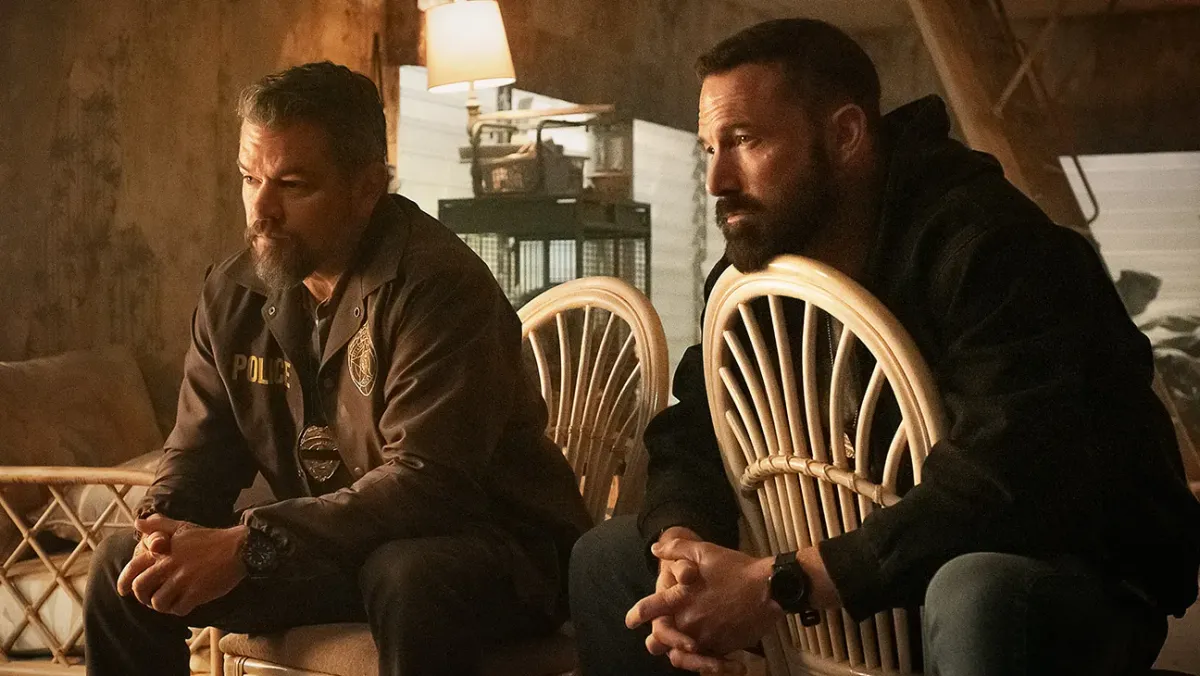
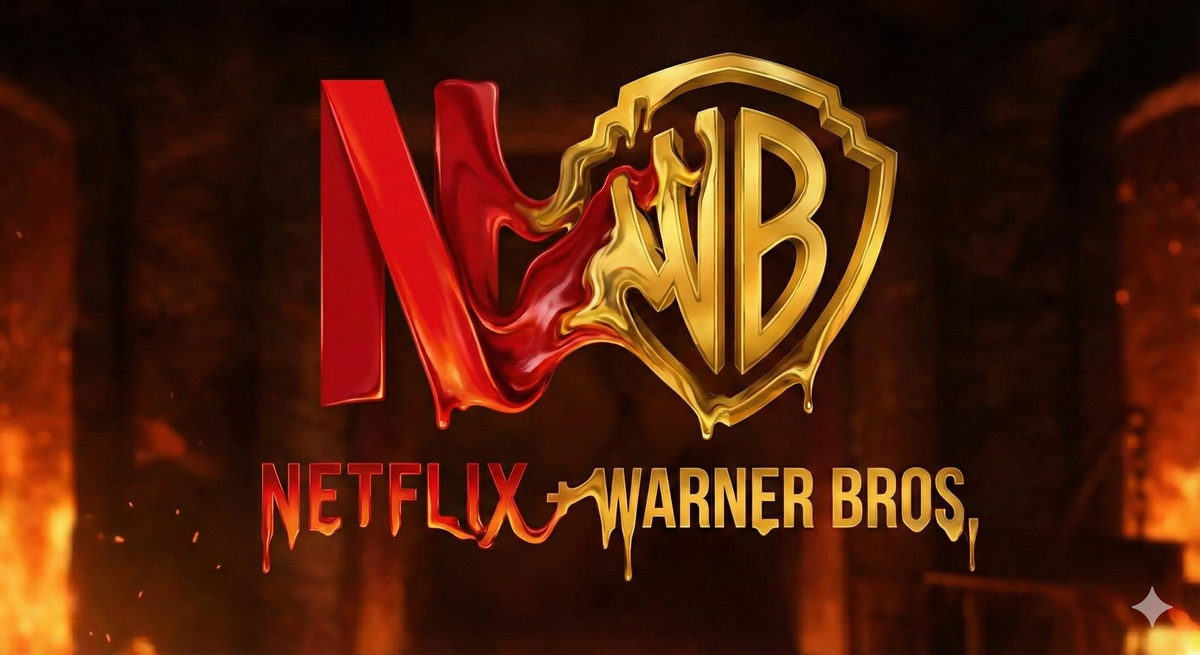
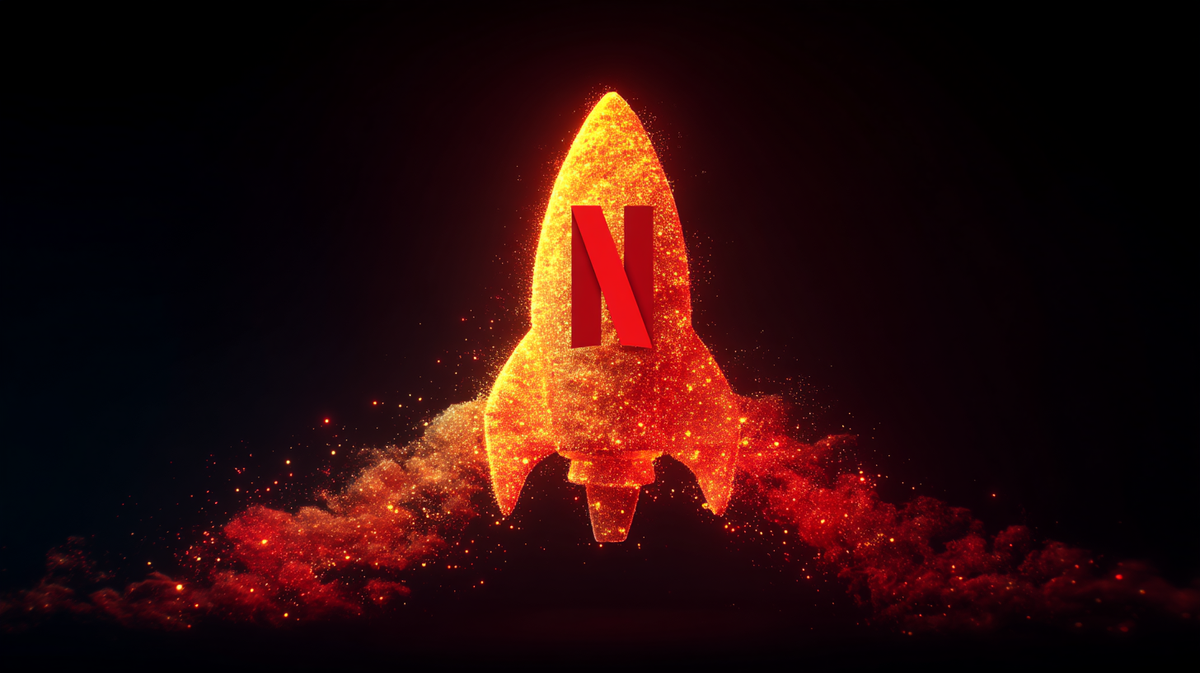
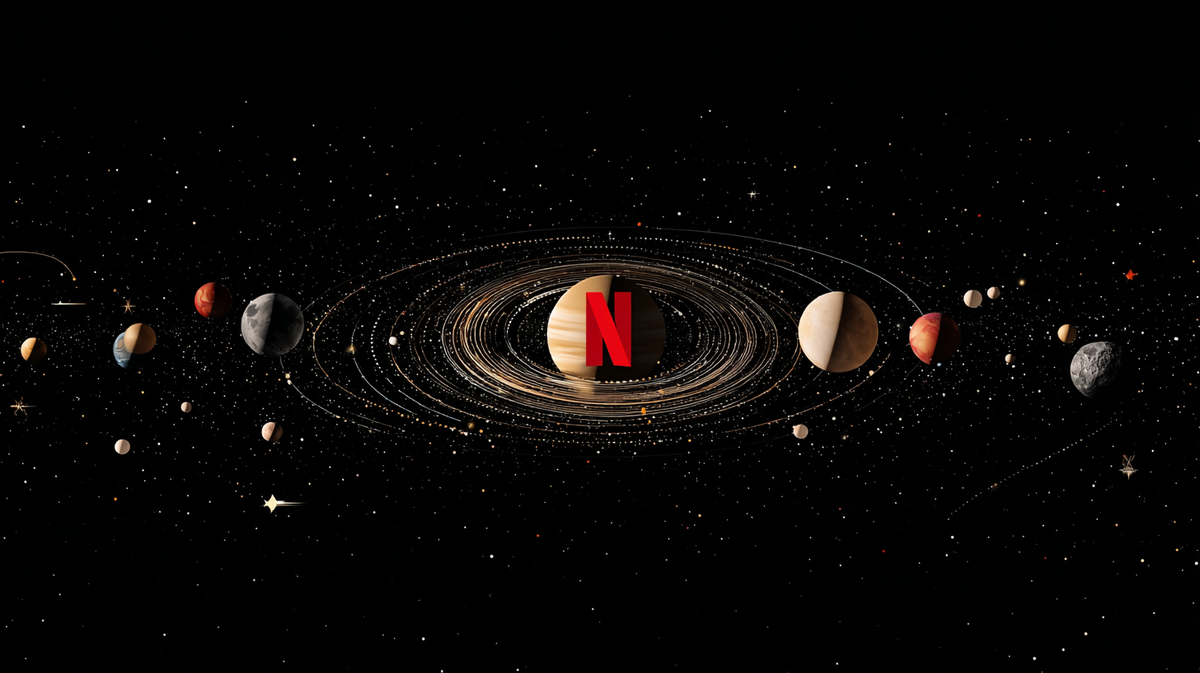
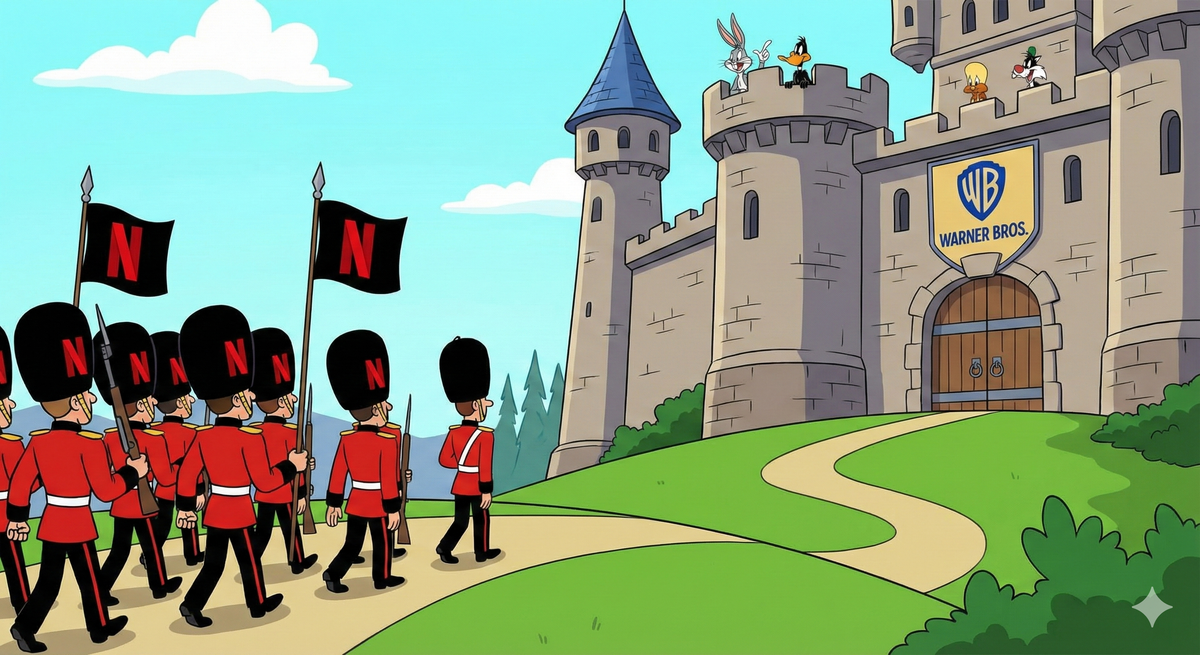
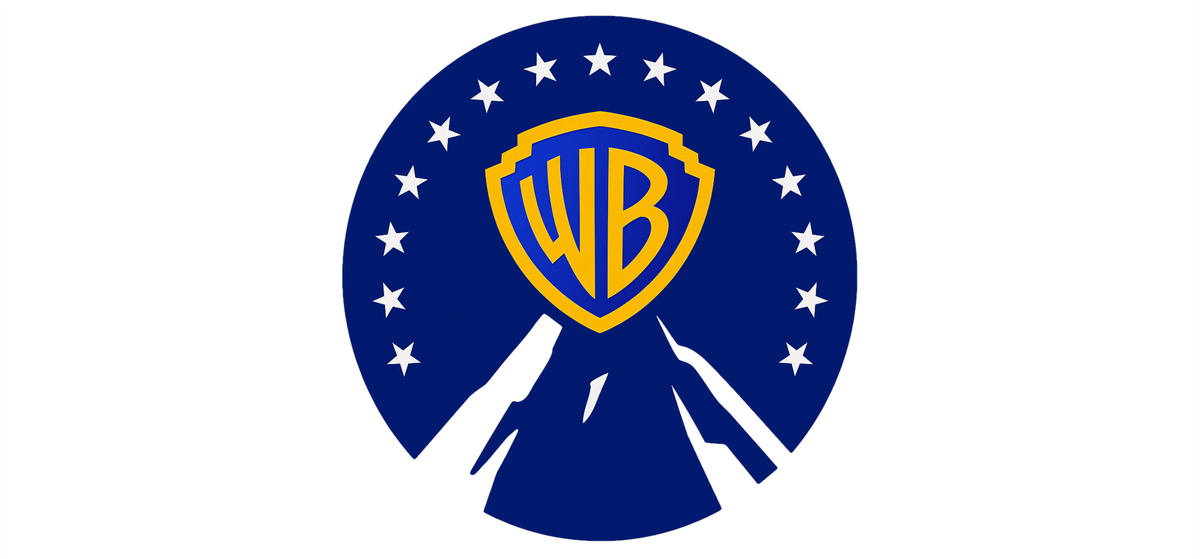

1 Strange how this keeps happening with Skydance deals? Also, I'm not really going to delve into the political aspects here, but I very much look forward to future reporting on that particular aspect, which sure seems to have a strong waft of a bunch of bullshit. ↩
2 Though "next" remains figuring out a way to combat YouTube. You know, the real competition here... To that end, probably not crazy to think that Netflix may be able to buy at least some of these assets – at far more firesale prices! – in a few years... ↩
3 Yes, Warner Bros has a small parks business too, thanks mainly to Harry Potter and deals with Universal. Paramount has been trying to get back into the game (after selling off some amusement parks back in the day). ↩
2026-02-27 00:42:56

The year was 2012. Tim Cook had only been in place as (permanent) CEO of Apple for a handful of months. During their Q2 earnings call, when asked about Microsoft's strategy of converging the laptop and tablet with their then-forthcoming Windows 8 operating system, Cook had the quip ready:
"You can converge a toaster and a refrigerator, but those things are probably not going to be pleasing to the user."
A lot can change in 14 years. Including, it seems, kitchens...